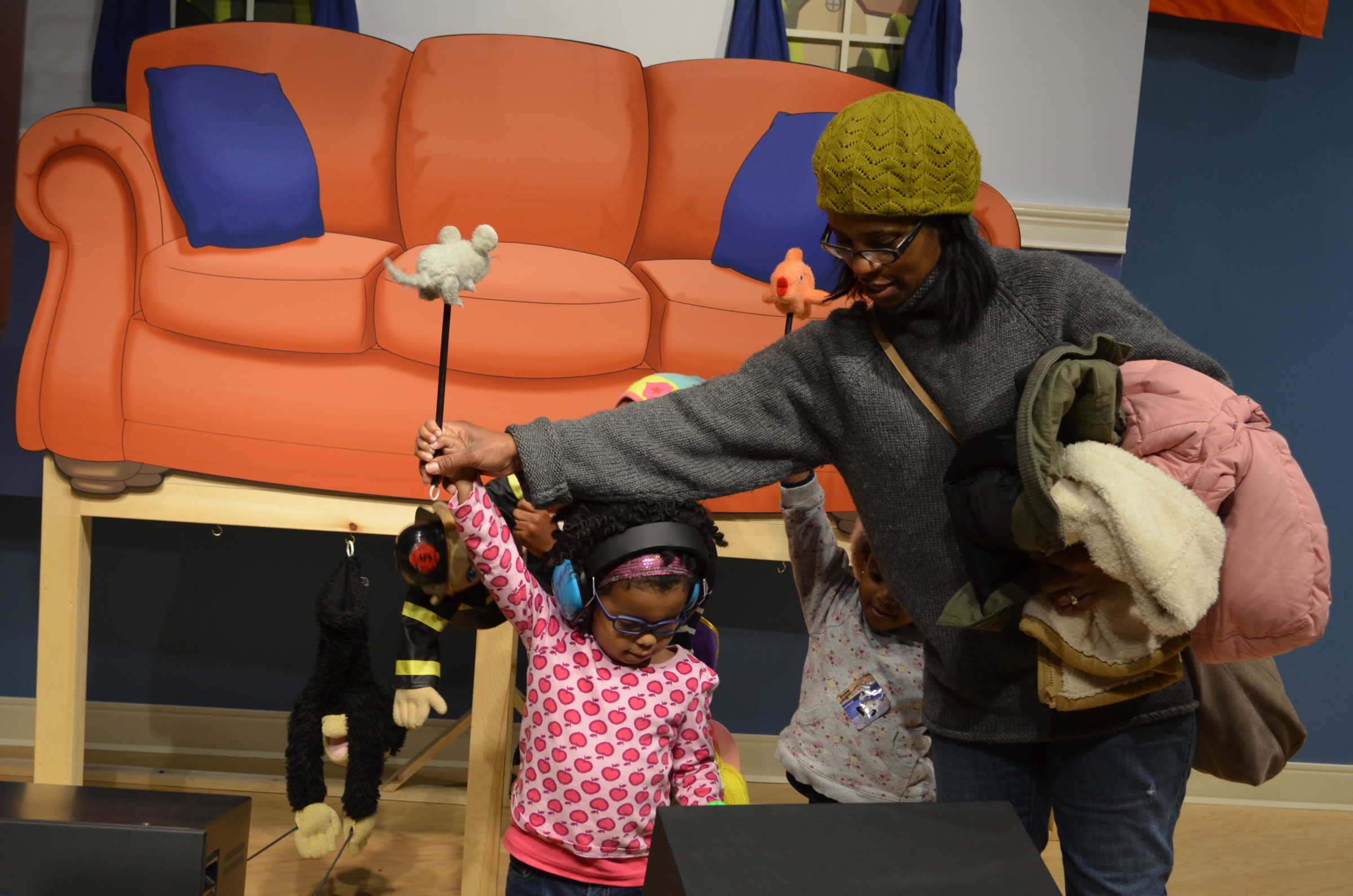Atlanta Arts Performances Offer Sensory-Friendly Experiences

The Center for Puppetry Arts has several sensory-friendly events in its performing season that include adjusted museum exhibits, performances and create-a-puppet workshops.
CENTER FOR PUPPETRY ARTS
For many children who have autism, attending an arts event can be overwhelming. To address this, several local organizations now offer sensory-friendly experiences in classical music, dance, theater and more to reach out to those who have difficulty processing performing arts.
These events incorporate elements that are easier on the senses, taking things such as sound levels, lighting, crowd size and content into consideration. Another key component is freedom – to move around the theater, speak, dance, touch or walk out to take a break.
“It’s a judgment free zone – if your child has a meltdown, an outburst or needs to get up and walk around, no one around judges or makes a face because we have all been there and get it,” said Kaitlyn Morris, manager of field development for the Georgia and Tennessee chapters of Autism Speaks.
With resources from Autism Speaks, an autism science and advocacy organization, the Georgia Symphony Orchestra presents a concert designed to bring live music to children with autism and autism spectrum disorder on March 12.
Morris said autism and autism spectrum disorder are both general terms for a group of complex disorders of brain development. Children with autism can have varying degrees of difficulty with social interaction, verbal and nonverbal communication and processing senses such as taste, touch, smell and hearing.
To make the concert sensory friendly the music does not have sudden changes in dynamic, and sound levels in general are lower, said GSO Executive Director Susan Stensland.
“The music itself has been chosen carefully,” Stensland said. “There are certainly louder and quieter sections of the music but no disruptive or alarming musical surprises.”
Additionally she said the performance length is just under an hour, only half the tickets for the theater are sold to allow room for movement, the lights are kept dim, and there is a “musical petting zoo” to touch and learn more about the instruments in the lobby.
Stensland said the idea for the sensory-friendly concert came from an experience she had with a family who attended a concert in 2014 with twin sons who have autism.
“We were able to find a seating location where the family could be near an exit if needed and also where one of the boys could see the bassoon,” Stensland said.
After the concert the children’s mother contacted Stensland to tell her what an impact the experience had on the twins and ask if her son could meet his favorite musician, the bassoonist.
“Her sons rarely experience times of peace, and they were completely mesmerized by the music of this performance,” Stensland said. “The parents in turn were able to enjoy not only the music, but the sight of their sons also enjoying the peace and power that music can provide.”
Other local organizations also offer programs and performances where adjustments to the setting make the event more inclusive for children with autism.
“These changes include adjusted lighting within the exhibits, as well as specialized education activities like touch tables and guided storytelling,” said Kelsey Fritz, exhibition director at Center for Puppetry Arts.
CPA has several sensory-friendly events in its performing season that include adjusted museum exhibits, performances and create-a-puppet workshops. The next event is March 13.
Fritz said, “We want to ensure these families feel welcomed and get to experience the Museum in an environment catered to their needs.”
Other programs children who have autism can enjoy are the Children’s Museum of Atlanta’s Sensory-Friendly Saturdays the first Saturday of each month and Gwinnett Ballet Theatre’s sensory-friendly performance of “Friends and Famous Dances” on March 25.
For some children an opportunity to preview the senses that a performance triggers before the actual show is beneficial. Alliance Theatre offers a “Meet Your Seat” program is designed to do just that.
“Families will be paired with a trained Alliance Theatre staff member and will walk through picking up tickets, scanning tickets, finding their physical seat,” said Olivia Aston Bosworth, family programs manager at Alliance Theatre. “They will go over expectations of the performance they will see.”
Attendees get to see examples of loud or bright technical elements from the production, giving families a chance to make a plan for self-regulation the day they see the show, Bosworth said.
“Meet Your Seat” for Alliance Theatre’s “The Lion, the Witch and the Wardrobe” takes place March 4 with more opportunities anticipated for future shows.
From the perspective of the performers, Stensland said making the musicians aware that the audience members are invited to move around and make noise during the performance and including the conductor in the planning process have prepared them for the concert.
Morris said, as with an special event that caters to the special needs population, they hope to create a sense of community and understanding through the sensory-friendly concert.
More information about these sensory-friendly events:
- Georgia Symphony Orchestra: “GSO Sensory Friendly Concert”
- Gwinnett Ballet Theatre: “Friends and Famous Dances”
- Children’s Museum of Atlanta: “Sensory Friendly Saturdays”
- Center for Puppetry Arts: Sensory-Friendly Programming
- Alliance Theatre: “Meet Your Seat”





